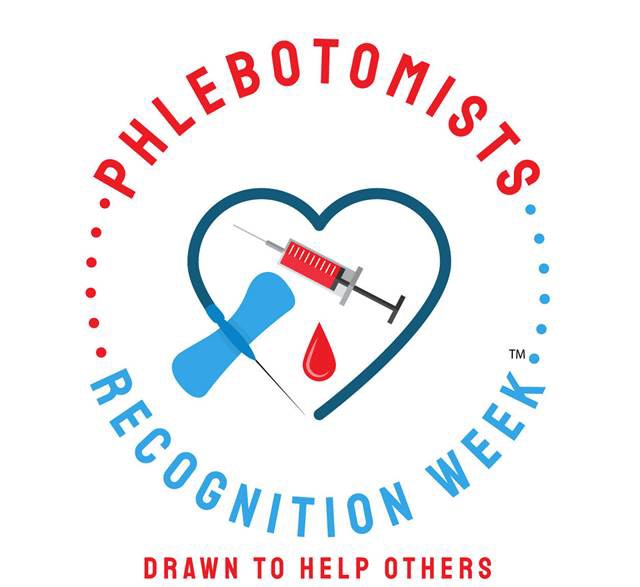You'll receive the latest updates on new standards, guidelines, and educational resources, as well as expert insights to help enhance your laboratory's performance and compliance.
CLSI Celebrates National Phlebotomists Recognition Week
To acknowledge the work done by phlebotomists, the Registered Phlebotomy Technicians (RPT) and American Medical Technologists (AMT) have designated February 9-13, 2026, as National Phlebotomists Recognition Week (NPRW). We’re celebrating Phlebotomists Recognition Week. Phlebotomists bring a unique set of skills and abilities that improve lives and save them! From the second a donor walks into the blood bank to the moment a patient is getting a transfusion, phlebotomists are front and center guiding, comforting and administering lifesaving medical care. Blood draws are crucial in helping clinicians diagnose diseases and monitor a patient’s health. CLSI is grateful for all of the contributions Phlebotomists make in healthcare. We’re happy to support these professionals in developing proper procedures, safe practices and standards that keep patients healthy and thriving!

To acknowledge the work done by phlebotomists, the Registered Phlebotomy Technicians (RPT) and American Medical Technologists (AMT) have designated February 9-13, 2026, as National Phlebotomists Recognition Week (NPRW). We’re celebrating Phlebotomists Recognition Week. Phlebotomists bring a unique set of skills and abilities that improve lives and save them! From the second a donor walks into the blood bank to the moment a patient is getting a transfusion, phlebotomists are front and center guiding, comforting and administering lifesaving medical care. Blood draws are crucial in helping clinicians diagnose diseases and monitor a patient’s health. CLSI is grateful for all of the contributions Phlebotomists make in healthcare. We’re happy to support these professionals in developing proper procedures, safe practices and standards that keep patients healthy and thriving!
Phlebotomists are essential members of the health care system. Their skill and expertise are necessary to perform venipunctures and other laboratory test sample collections. Thanks to the hard work and dedication of phlebotomists, laboratorians are able to accurately perform patient sample testing that helps clinicians diagnose and treat patients.
CLSI provides essential standards and other educational products for phlebotomists and other health care providers who perform venipuncture.
Our most well-known phlebotomy standard, CLSI PRE02 | Collection of Diagnostic Venous Blood Specimens provides a descriptive, stepwise process and procedures reflecting the quality system essentials format for diagnostic venous blood specimen collection. Special considerations for collections from vascular access devices, blood culture collection, and collections in isolation environments are included, as well as how to handle emergency situations. An expanded appendix section provides helpful tips for collecting specimens from pediatric and other challenging patients.
CLSI GP4 | Collection of Capillary Blood Specimens provides procedures for collection of capillary blood specimens that contribute to the accuracy of the results and the safety of the patient and the health care professional. Specifications for collection sites, puncture depth, and disposable devices used to collect, process, and transfer capillary blood specimens are also included.
And CLSI GP48 | Essential Elements of a Phlebotomy Training Program is an invaluable resource for those who develop phlebotomy training programs and courses. GP48 is designed for college and proprietary school educators, nurse educators, educational coordinators, laboratory directors and managers, phlebotomy supervisors, and any other health care professionals or educators responsible for the development and/or implementation of a specimen collection training program.
New! CLSI H21 Webinar: Collection, Transport, and Processing of Blood Specimens
Phlebotomists and hematologists, we're here to support your work and help you improve the workflows patient care relies on every day. From collection to processing, CLSI covers the most vital best practices in our new webinar, CLSI H21 Webinar: Collection, Transport, and Processing of Blood Specimens. This webinar goes over preexamination steps for samples referred for coagulation testing. Featuring a helpful Q&A section and critical updates, stay on top of the standards that keep your results accurate, safe, and reliable.
This webinar takes place February 10 at 1 p.m. ET.